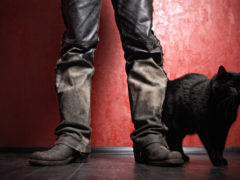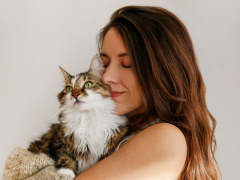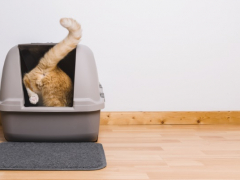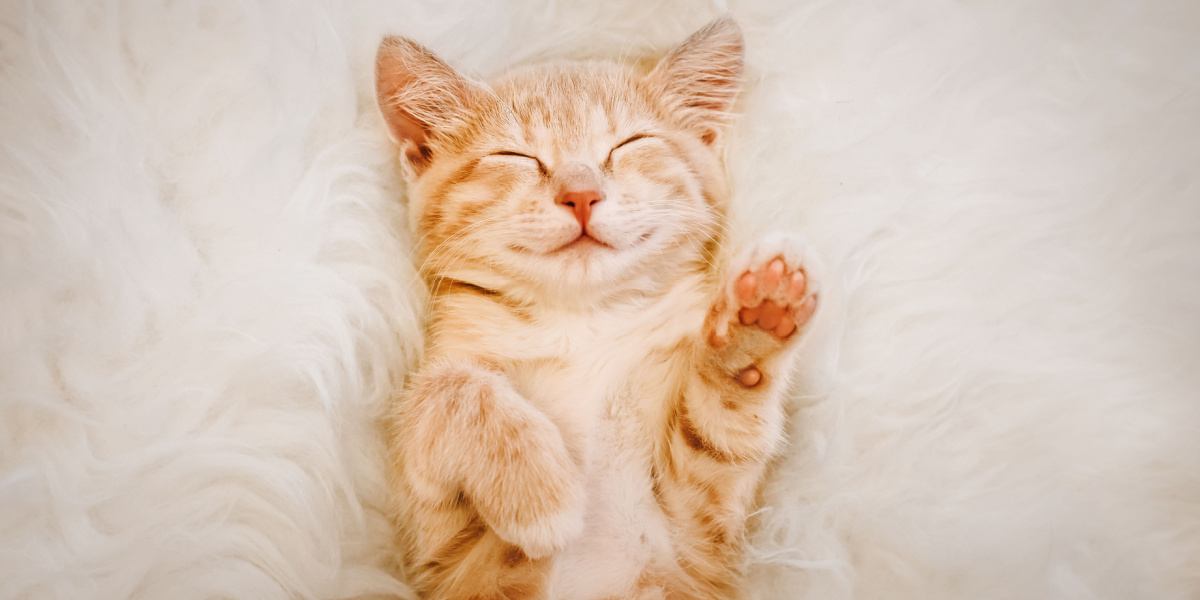
Are you wondering what makes a cat a pedigreed cat? Do you want to know if your cat is pedigreed cat? Do you want to learn the difference between purebred cats and pedigreed cats?
Pedigreed cats are purebred cats that have been bred for specific desirable traits. Pedigreed cats come in a range of different shapes and sizes. There are currently more than 70 official pedigreed breeds. Pedigreed cats have written documentation of their purebred ancestry.Key Takeaways
Pedigreed cats are those that have purposely been bred to possess specific physical characteristics or breed-related behavioral traits. Pedigreed cats have parents that are the same breed—one that is officially recognized by a cat registry, for example The Cat Fanciers’ Association (CFA), The International Cat Association (TICA), or The Governing Council of the Cat Fancy (GCCF).
Some pedigreed cat breeds developed naturally, originally starting as small colonies in isolated areas. The cats were all left to develop similarly, mainly due to the environment they were exposed to, combined with their own unique genetics. Other pedigreed cat breeds were purposefully developed by humans, using older natural breeds and/or breeding cats that were born with genetic mutations that cause unique colors, coat types, or other physical characteristics.
Today, there is a heavy component of human intervention, even with pedigreed cats that developed naturally. Cat breeders make specific breeding choices and follow written breed standards to produce kittens with defined breed characteristics.
Also Read: Which Personality Type Does Your Cat Have?
Why Are Pedigreed Cats So Popular?
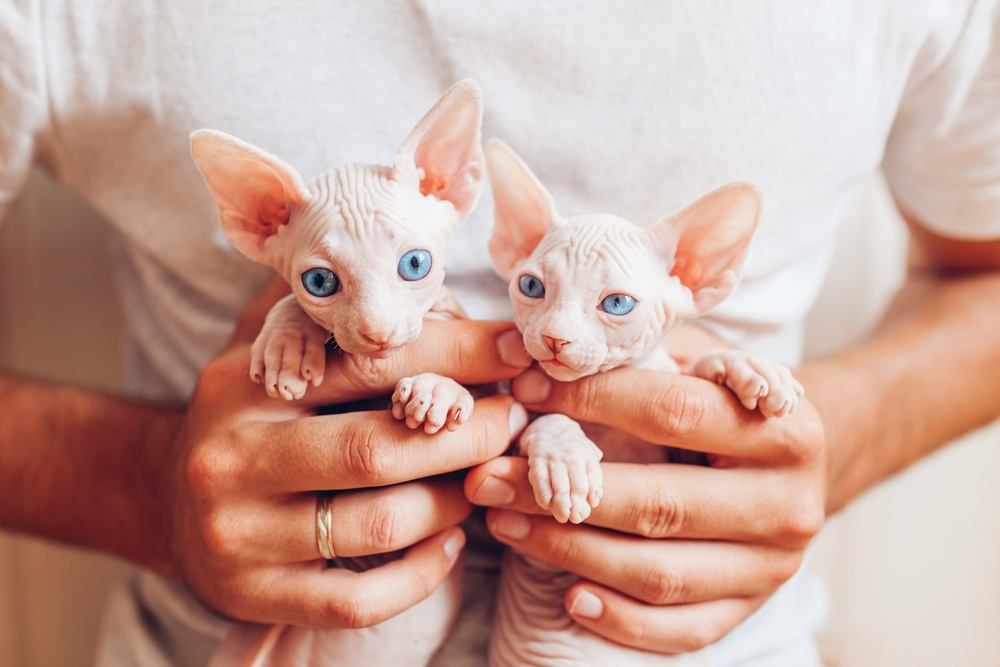
Pedigreed cats are carefully bred to retain consistent physical and temperamental characteristics.
Pedigreed cats are often considered unique and rare due to the years of breeding that have contributed to them developing into the cats we recognize today. Some breeds are sold for great sums of money. Lots of owners and breeders enjoy “showing” their cats in cat shows where they are judged for their appearance and given awards.
If cats win awards this gives them celebrity status in the cat world and can make them even more valuable. Pedigreed kittens from a show winner for a particular breed can be sold for thousands of dollars.
Non-pedigreed cats, called mixed breeds or “moggies,” are much more common as they can be literally any mix of any cat breed. They are usually referred to as domestic short-haired, domestic medium-haired, or domestic long-haired depending on the length of their coat.
Also Read: 11 Best Indoor Cat Breeds For Homebodies
Downsides Of Pedigreed Cats
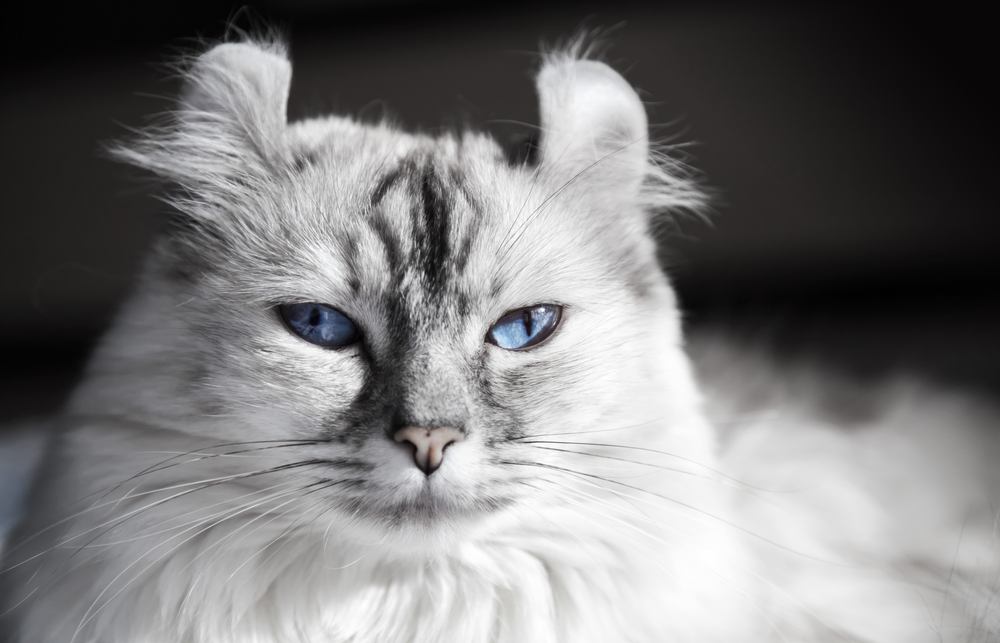
Smaller gene pools mean pedigreed cats can sometimes pass on genetically linked inherited diseases from the parents to the kittens.
Due to the numbers of pedigreed cats being relatively small, the gene pool of each breed is therefore limited, too. This allows for the distinguishing features and traits that people know and love.
The downside is that if there are any health problems or genetic disorders present then they are readily passed on through the generations. Most breeds can pass on inherited disorders, and the more common ones for each breed are usually well-known and documented. Breeders can test their cats for certain genetic disorders prior to breeding them to avoid passing health issues on to kittens.
Also Read: The 9 Friendliest & Nicest Cat Breeds In the World
The standards for each breed are available on websites such as CFA and TICA.
Popular Pedigree Cats
Most cat breeds only came about relatively recently. Some ancient cat breeds that developed naturally have been around for hundreds or even thousands of years, but cats haven’t been domesticated as dogs have. Humans started intervening with cat breeds about 150 years ago, and this was when most types of pedigree cats began to get distinguished, but it has been a long process.
Below is a list of popular pedigree cat breeds.
#1 Abyssinian
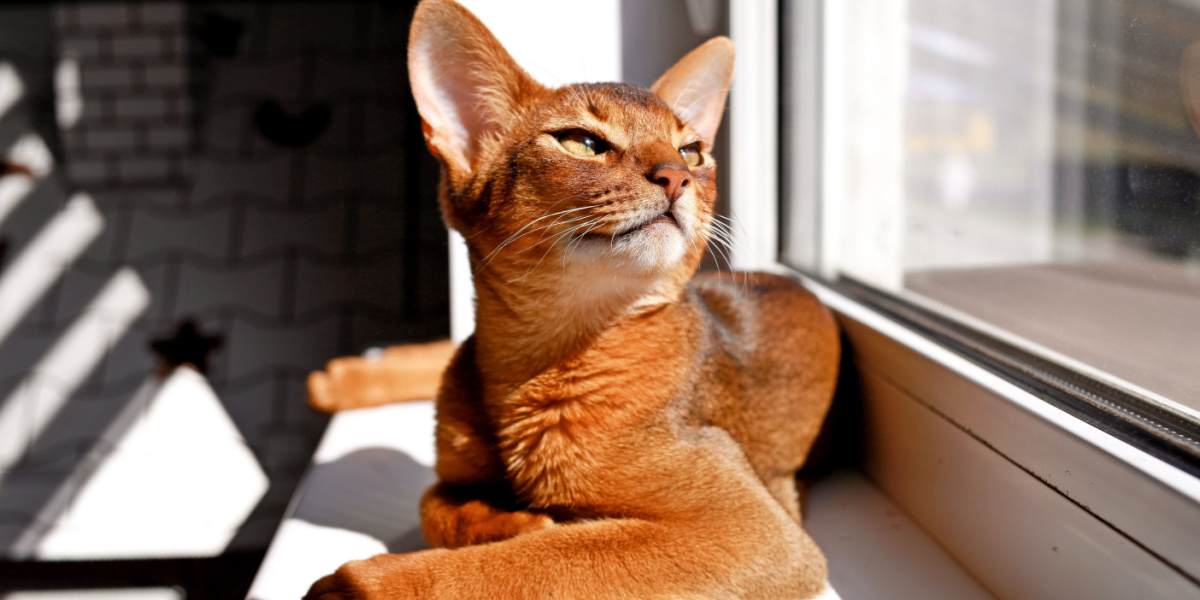
Each individual hair of the Abyssinian’s ticked coat has alternating bands of lighter and darker color.
Abyssinians are short-haired cats that likely originated in Southeast Asia. The Abby’s ticked coat can be cinnamon, blue, or fawn in color. Abyssinians are very active and affectionate.
#2 Bengal
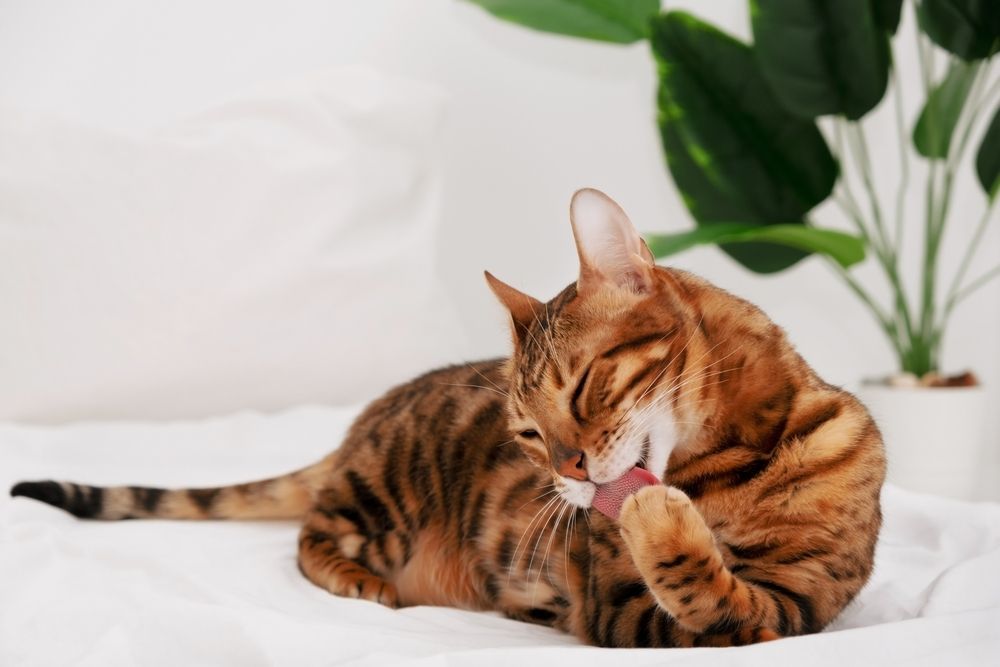
The Bengal is a hybrid breed that was originally developed by crossing domestic cats with the wild Asian leopard cat.
Bengals are short-haired cats with richly colored coats that have attractive marbling, rosettes, stripes, and/or vivid spots. They are very inquisitive, agile, and active.
#3 Birman
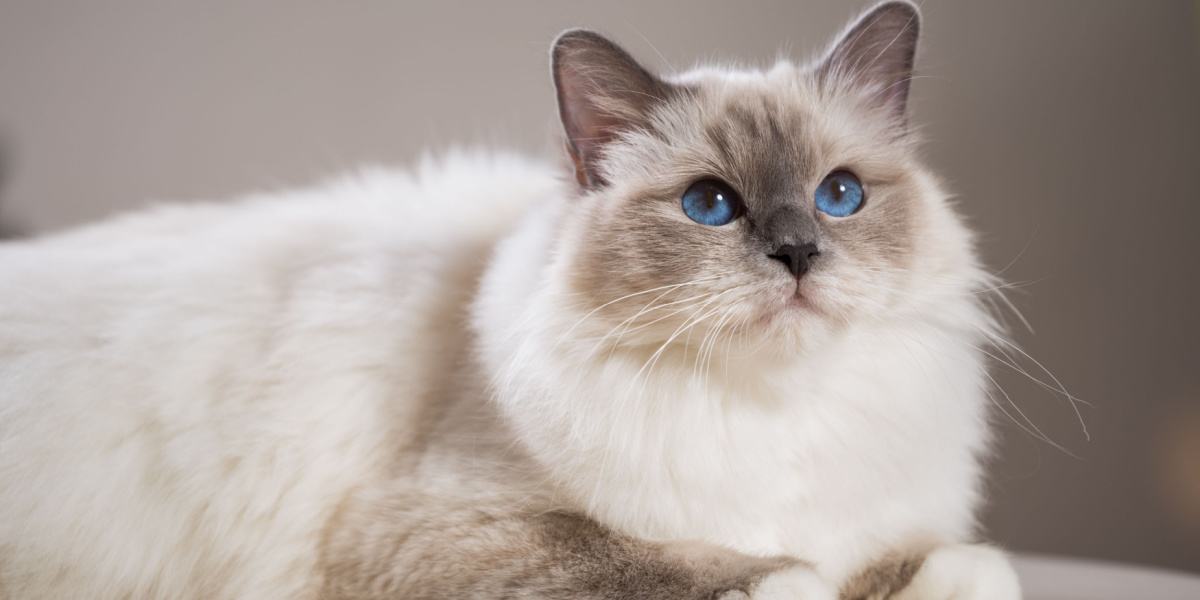
Birmans always have blue eyes and four white paws.
Birmans are long-haired cats with all-white feet in a point-color pattern. They are loving and affectionate. Although the breed’s origins are shrouded in mystery, the beautiful cats may have originated in Burma.
#4 British Shorthair
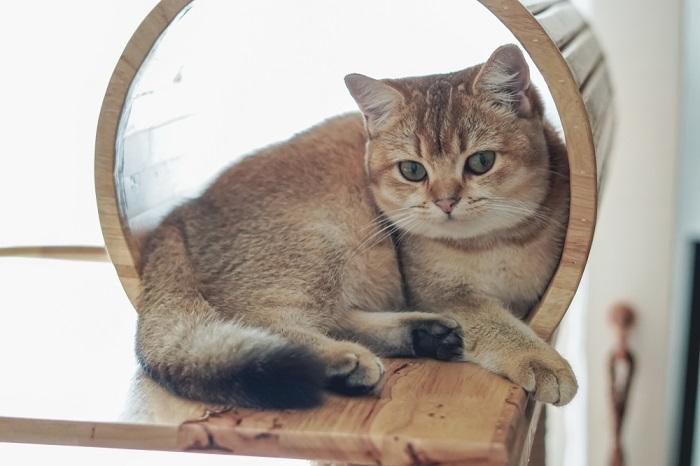
British Shorthairs are often blue, but they can be other colors, too.
These cats have short-haired coats which are very thick and smooth. They often are blue but can be other colors, too. British Shorthairs started out as street cats, but humans refined them into their current form today. They are chilled out and tranquil and are known for getting on well with people.
#5 Burmese
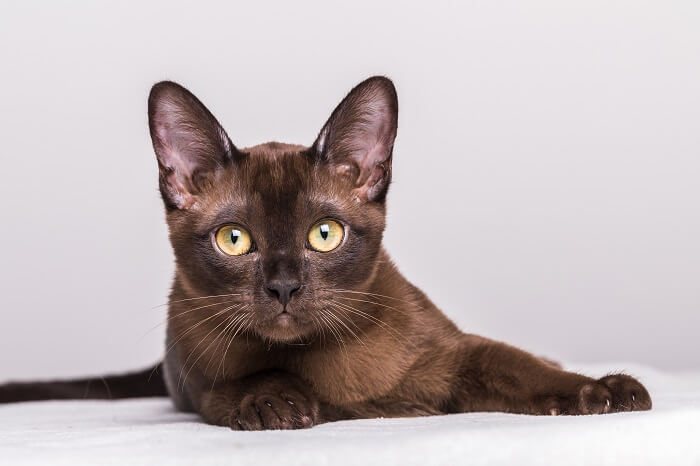
The Burmese breed was created in the United States by crossing a small walnut-brown female cat that came from Burma with Siamese.
Burmese are short-haired cats that are usually very muscular and athletic. They can be sable, blue, platinum, or champagne. They are very friendly and affectionate.
#6 Cornish Rex
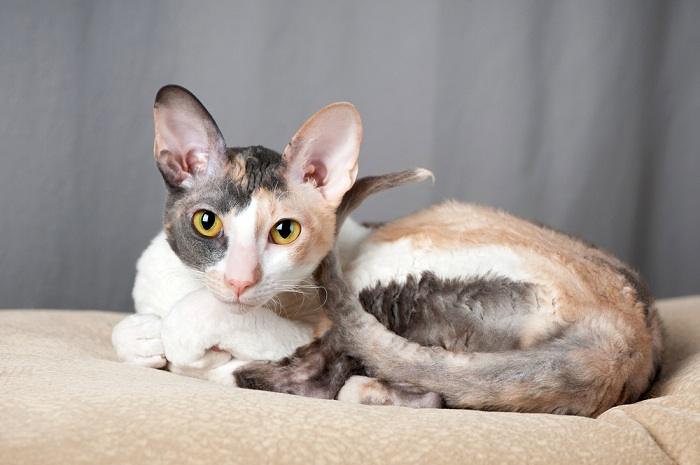
All Cornish Rex trace their roots back to one kitten born with a genetic coat mutation in a litter of barn cats in Cornwall, England.
Cornish Rex are short-haired cats with unique coats that are soft and have a crimped effect. They are very active and can be energetic but also love attention.
#7 Devon Rex
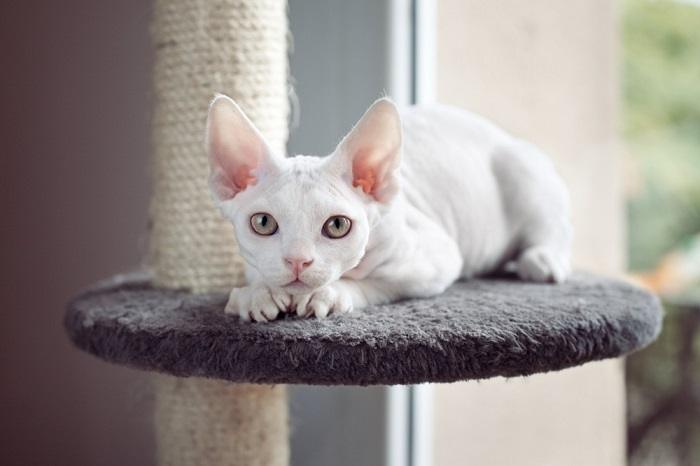
The Devon Rex breed is the result of one stray kitten born with a genetic mutation in Devonshire, England, in the 1950s.
Devon Rex are similar to their Cornish cousins—they are also shorthaired with a crimped coat. They come in many different colors and are described as having a “pixie” look and a personality to match.
#8 Maine Coon Cat
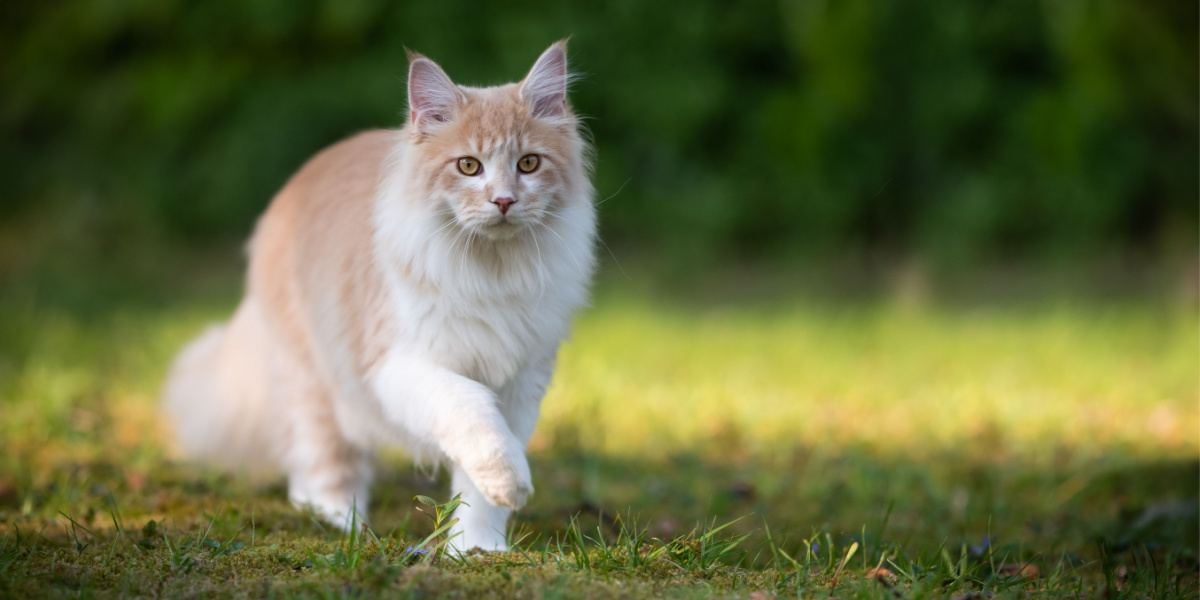
Maine Coons are one of the largest cat breeds, with some males weighing 20 pounds or more.
Maine Coons are majestic, long-haired cats. They are very large and come in many colors and patterns. These gentle giants are very active.
#9 Norwegian Forest Cat
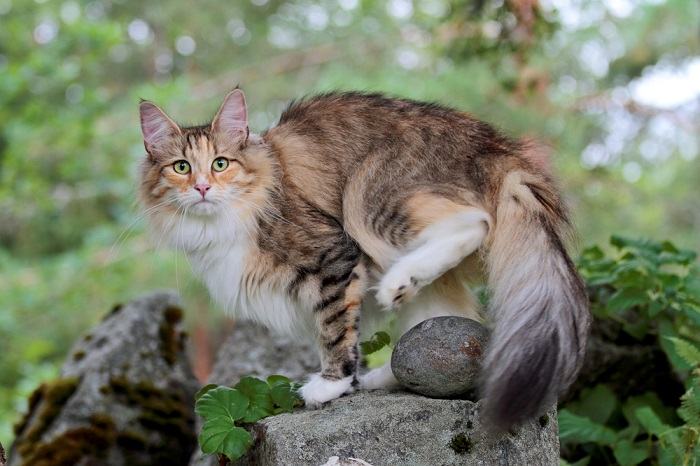
Norwegian Forest Cats, known as Skogkatts, lived and traveled with the Vikings, providing vermin control.
Norwegian Forest Cats are sometimes confused with the Maine Coon, but this is a completely separate breed that developed naturally in Scandinavia. They are very hardy and well-built, with a thick, heavy coat that requires a lot of maintenance. They are very fit and affectionate.
#10 Oriental
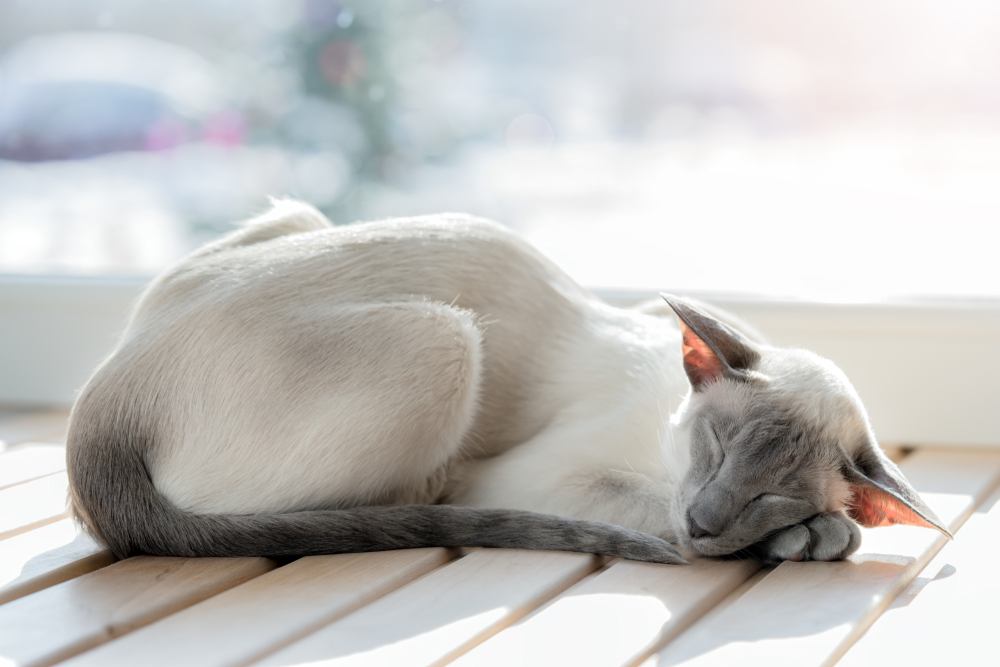
The Oriental comes in many different solid and patterned colors that are not found in the Siamese breed.
The Oriental Shorthair and Oriental Longhair are similar to Siamese cats but without pointed color markings. Orientals come in lots of different colors, and are very vocal and affectionate.
#11 Persian
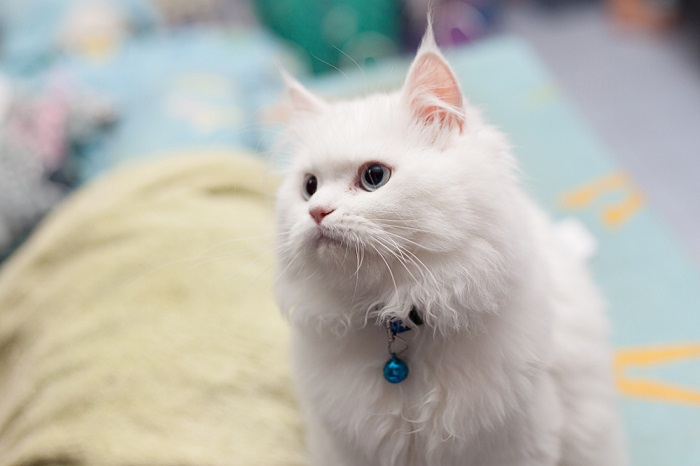
The Persian cat loves to relax at home with their favorite people.
Persians are longhaired cats with cobby bodies and luxurious, thick coats that come in lots of different colors. The Persian has a round head with a small flat nose. They are quiet, calm, and affectionate.
#12 Ragdoll
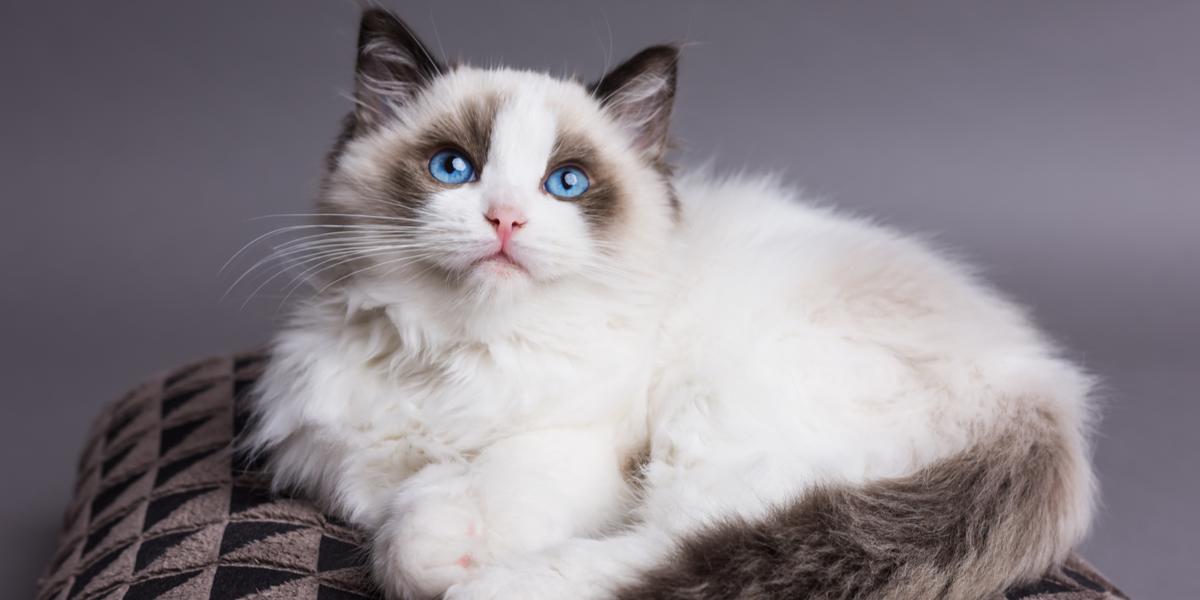
Ragdolls love cuddles; the breed even got their name from the way these cats go limp in your arms.
Ragdolls are longhaired cats. They have full thick coats with color at the points. They are very easygoing, placid, and loving.
#13 Russian Blue
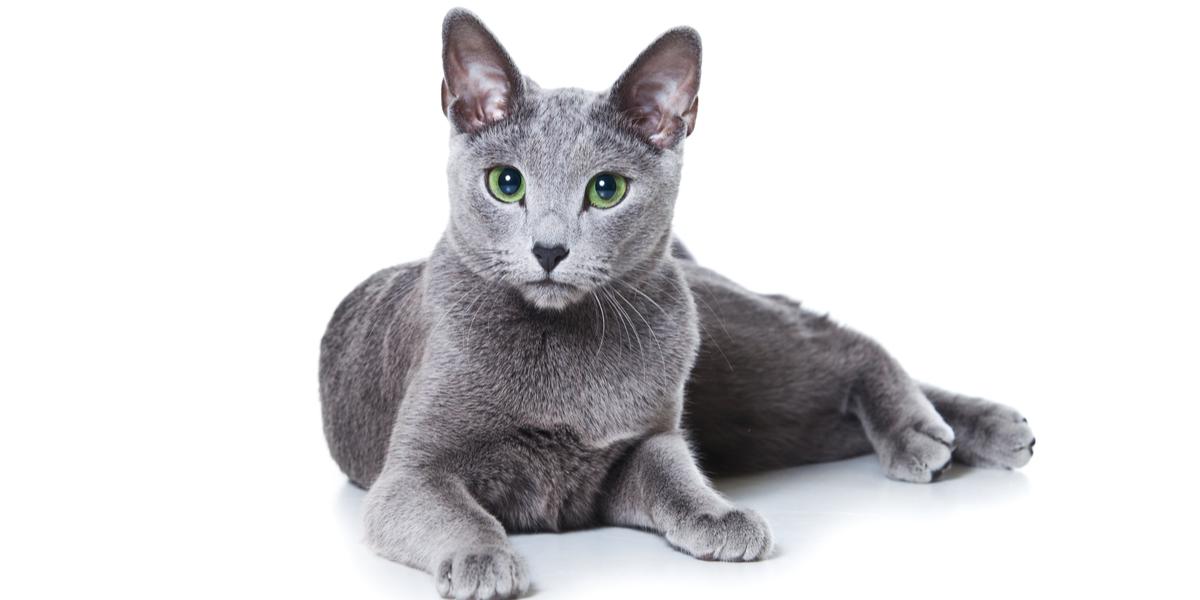
In addition to a silvery-blue coat, Russian Blue cats always have vivid green eyes.
Russian Blue cats are shorthaired with a dense and thick coat that is blue with silver tips. This breed naturally originated in Russia, where they were known as long ago as the 1800s. They are very peaceful and graceful.
#14 Siamese
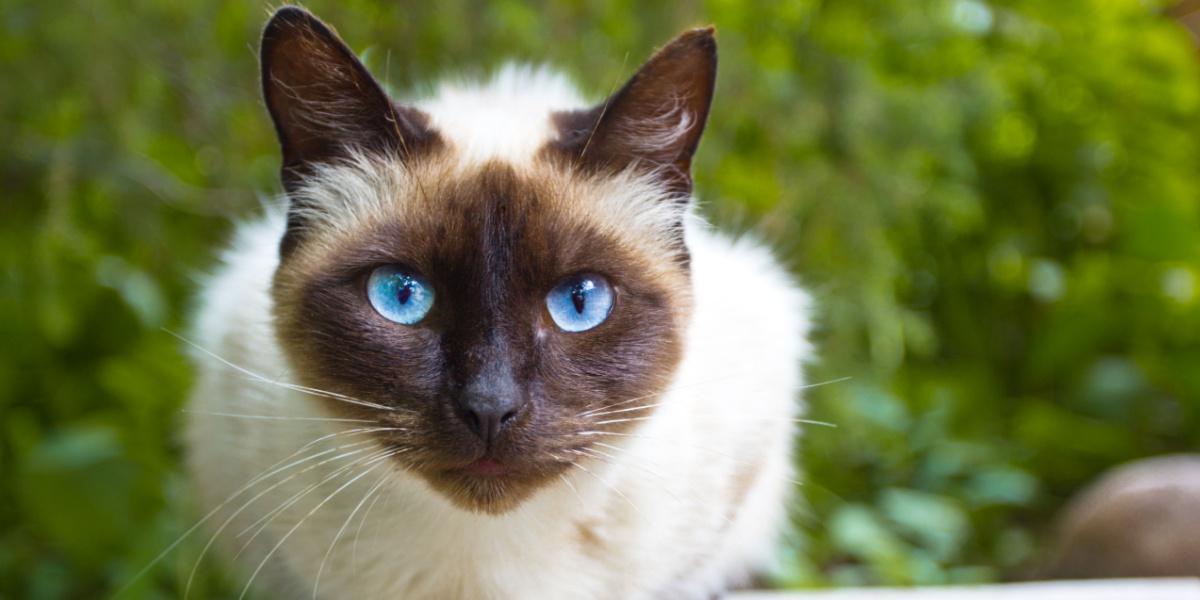
The Siamese comes in four pointed colors—seal, chocolate, lilac, and blue—and always has blue eyes.
Siamese are short-haired cats with wedge-shaped heads. They have slender, tubular frames with color at the points (ears and face, legs and tail). They can be chocolate, seal, lilac, or blue. Siamese cats are need a lot of attention and very vocal, but they also very affectionate.
#15 Scottish Fold
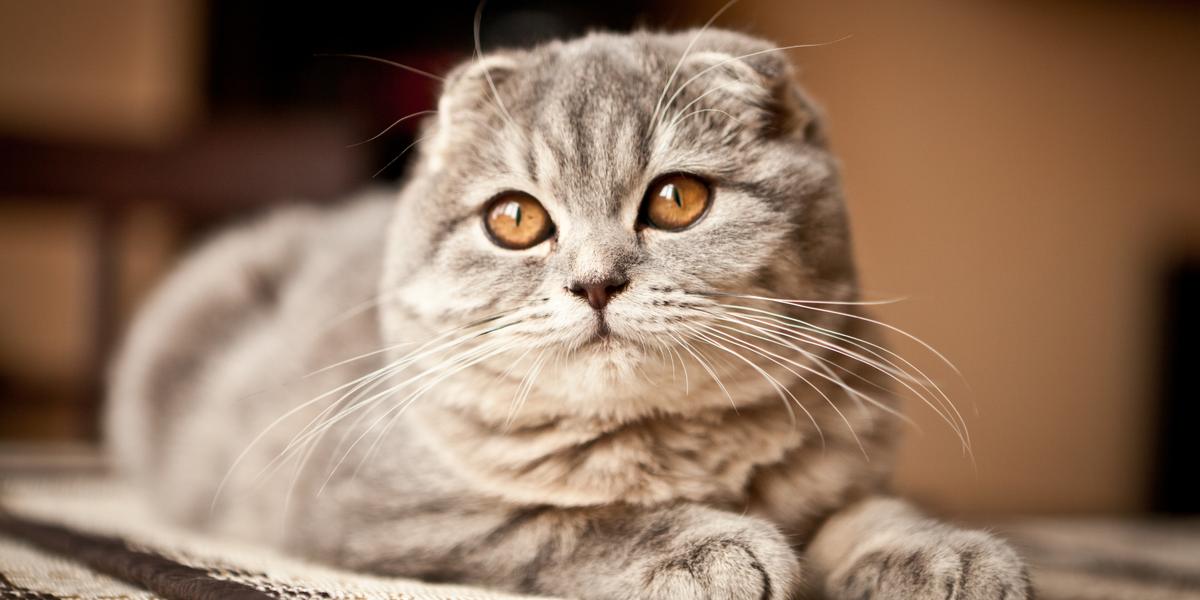
The Scottish Fold breed was developed from one kitten born with a genetic mutation for folded ears in a litter of barn cats in Scotland.
The Scottish Fold’s ears fold down in a forward position. They have big eyes and they come in many different colors. This breed is very loving and gentle.
#16 Sphynx
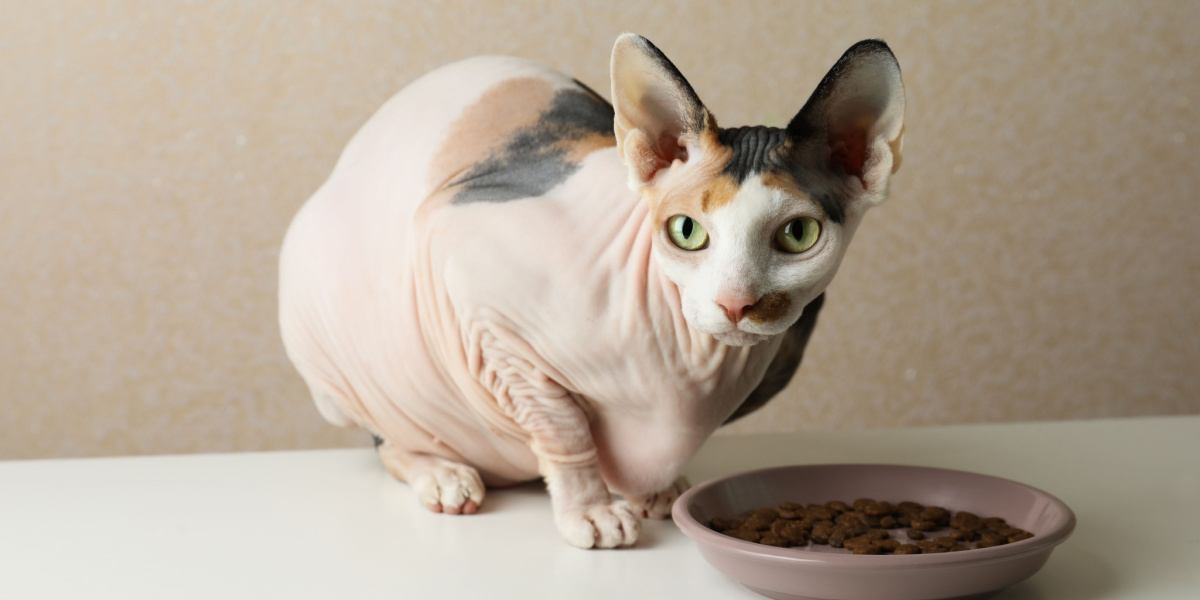
The Sphynx originated in Ontario, Canada, when someone discovered a hairless kitten born with a genetic mutation.
Sphynx are hairless cats. They have large ears and are very agile. They are friendly, loving, and very energetic.
New Breeds Of Cats
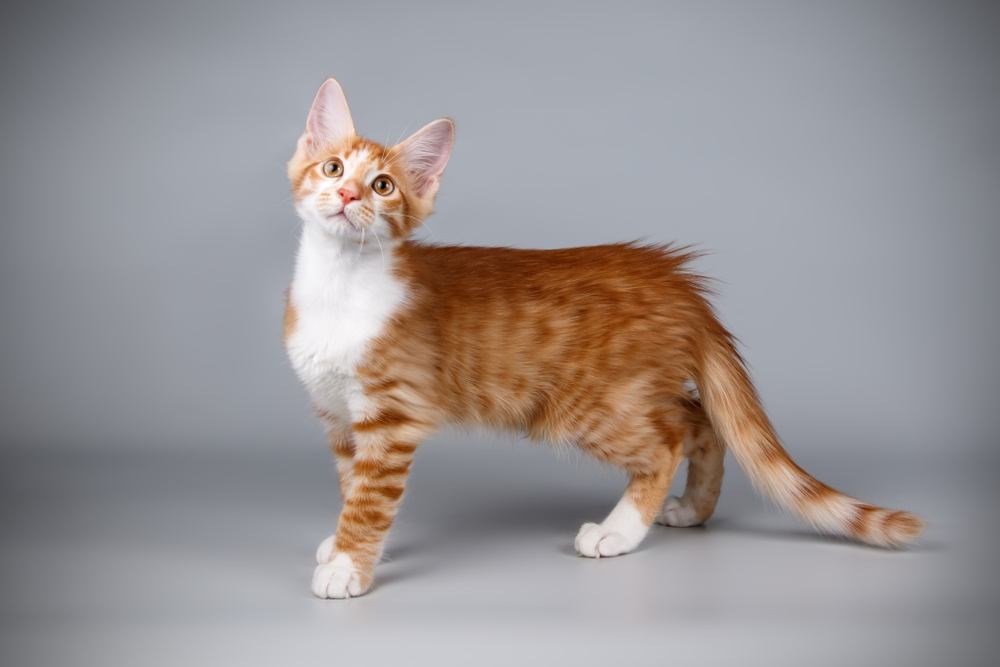
Some cat fanciers create new breeds by crossing two or more purebreds, or breeding domestic cats with small wild cat species.
New breeds of cats are not very common but they can occur in a few different ways.
- Natural New Breed: These are developed when a genetic mutation occurs in the domestic cat. Small groups are started from one cat that was born with the genetic variation, which was then passed down to the offspring and so on.
- Mixing Two Existing Breeds: This is done when breeders purposely mix two breeds with desirable characteristics. Breeders can also breed domestic cats with wild cats to create hybrids. Some registries don’t recognized hybrid breeds.
Also Read: 10 Cat Breeds That Live The Longest
What Is The Difference Between A Purebred Cat And A Pedigree?
These two words are often confused. Purebred refers to characteristics, appearance, and typical temperament of each breed, which is outlined by breed standards—written guidelines that are used to describe and identify the ideal specimen of a breed.
A pedigree is the written record of breeding, which shows all of a cat’s known and documented ancestry with parents and grandparents of the same breed, and any show titles won by the cat’s relatives. A cat look purebred, but without a documented and written pedigree it would not technically be a pedigreed cat.
Also Read: 8 Lovable Cat Breeds With Short Legs
Pedigreed Cats: Final Thoughts
Pedigreed cats come in all sorts of shapes and sizes. Choosing a pedigreed cat might enable you to select specific features or desirable behavior traits that you would like to have in a pet. Due to the smaller gene pool they are bred from, it does increase the risk of them carrying and being affected by genetic diseases. Pedigreed cats can also be extremely expensive.
Also Read: New Cat Owner Checklist
Frequency Asked Questions
Are pedigree cats better than normal cats?
Pedigreed cats have predictable and desirable behavioral traits have been selectively bred over the years for each breed. Pedigree cats are more likely to be affected by genetic diseases as they are bred from a smaller gene pool. They also tend to be more expensive to buy and insure.
What is the most popular pedigree cat?
Persian cats are one of the most popular breeds. They are well known to be placid and laid back and very affectionate. They have endearing features including small round faces and short noses which lots of owners find irresistible. They are also one of the oldest breeds of cats.
How do I obtain my cat's pedigree?
If you want a copy of your cat's pedigree you need to contact the breeder of your cat. They can apply for a duplicate Application for Registration (which is also called a blue slip) and this will be sent to the breeder who will pass it on to you.
